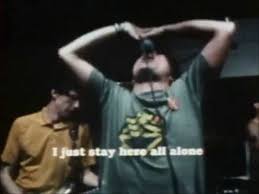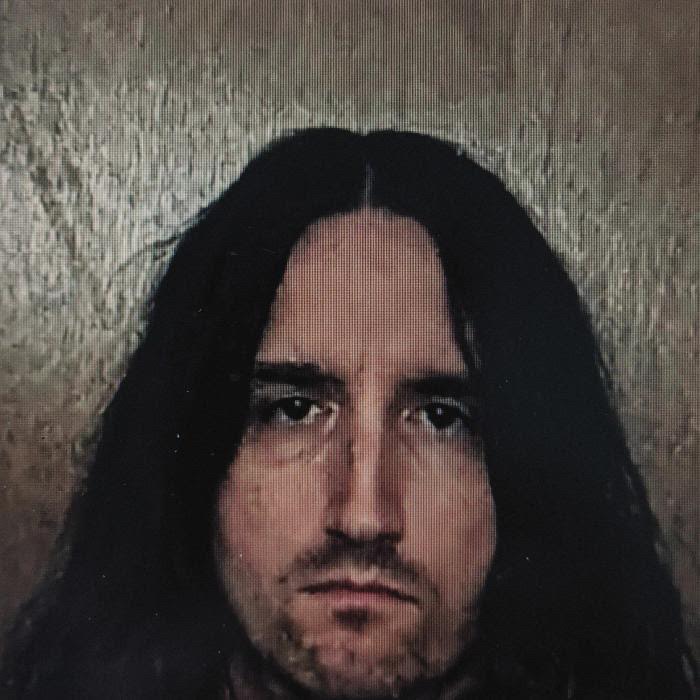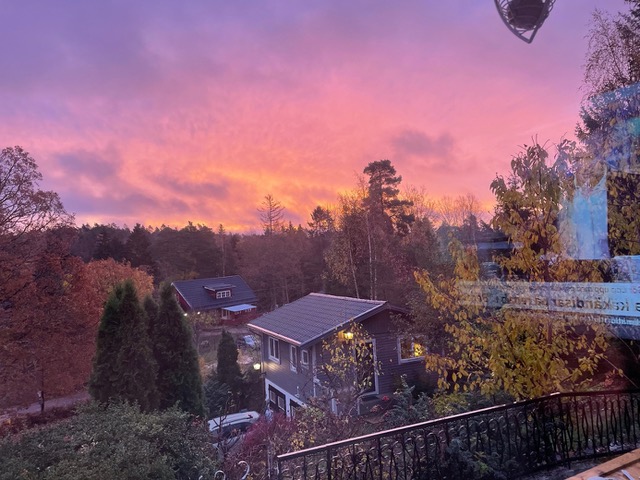CONTOURS OF ANHEDONIA
By Cheyenne
I am depressive, even though I've been medicated for the condition for more than a decade now. March 2023 marked ten years of taking antidepressants daily, and probably forever. I was diagnosed with MDD - major depressive disorder - in 2013, after struggling for most of my life with the Big Motherfuckin' Sad. I now know I've had symptoms of depression since I was about ten years old, but my mental health situation became truly dire during my teen years and into my twenties. I was 29 when I finally surrendered and went to see a doctor.
Before my diagnosis, I had frequent anxiety attacks, uncontrollable crying jags, violently angry explosions, and ideation of self-harm/annihilation, which intensified greatly during my late 20s. I also had a hallucinatory, infuriating, temporal experience of time speeding up and slowing down at random, which puzzled most of my doctors. This one is still unexplained, but it has abated since I began taking medicine.
The medical system in the USA does not make it easy for people to access mental health care in any form. I didn't trust the medical industrial complex to save me, or help me, or even to make me any better. I tried to ignore the problem or just survive it as best I could. I took herbs that didn't work. I meditated. I exercised. I read anarchist theory and the manifesto of the Icarus Project. I attempted to embrace my madness, to do talk therapy as the sole form of treatment. I assumed that pharmaceuticals would numb me to myself, and I didn't want to lose connection. I didn't want to be an embodied dial tone, to catatonically float through life, unresponsive and unemotional, in a state of perpetual waking sleep.
I knew I was a moody, sad bastard. But I also knew something was different about my moodiness, something dangerous, so I tried to manage it or push it out of my mind. Mostly, that looked like years of self-abandonment in the forms of partying, serial dating, one-night stands, drinking excessively, codependency, or staying impossibly busy (which I still do, tbh). All fell short of my goal of having fewer depressions and less anger. In 2013, the walls began to close in, and I felt like I had a very stark choice: to listen to the intrusive thoughts and do something drastic, or try and get help.
I had become both desperate to leave earth and desperate to stay, so I tried to stay, because leaving felt like a betrayal. Somehow, through excessive trials and errors (Lamictal and Prozac don't work for me) and side effects galore (no sleep, no orgasms, poor control of language, full-body aches), I pulled through and found the current medication routine that seems to work (small doses of Wellbutrin and Zoloft, daily; I'm now a very light sleeper and can be occasionally anxious, but I'm no longer crying violently a few times a day). I am still learning the contours of my medication-laced anhedonia (
I still get anxious or angry or mournful, but their incarnations and incantations are muted compared to the ear-splitting volume at which they once appeared, and can now usually be traced to stressors or other triggers. The psychedelic unpredictability of how my illness manifests is now more manageable, better understood; still mysterious. My range of emotions is hemmed in at the sides by two pills a day; I have guardrails that steer away from lengthy forays to dangerous levels of depression; the greyed-out days come in shorter clusters; the lack of fulfillment is more fleeting. It is not a perfect solution.
I supplement medication with massage, weekly friend check-ins, microdosing, talk therapy, emotional sobriety work, DBT techniques, meditation, drumming, and other creative pursuits (like writing, which I'm doing now). When I was at my deepest darkest in my early twenties, I did a series of paintings which I subsequently gave away, unable to bear the sight of them. It took me a really long time to understand these things as forms of medicine and sources of soothing, exorcism and healing, and not just evidence of my failure to be emotionally normal. I also owe an unpayable debt of gratitude to my incredibly supportive friends, chosen family, talk therapists, sponsors and fellow travelers in ACA (adult children of alcoholic & dysfunctional families), and sweet companion animals for their gentle encouragement and keeping me engaged, joyous, and persistent.
I'm high-functioning and most people do not know at first that I suffer from major depression. A lot of us mask it pretty well, or we isolate, to spare our friends or family from the worst of the emotional storms. One of the darkest periods of my life was when I was super engaged in community, very active, partying all the time and participating in the music scene. Most people were none the wiser. But I also slept 13 hours a day and wept constantly, convinced I was worthless and didn't deserve to live. Any time awake was spent at work or scrolling social media or playing mindless games on my phone. A friend gently asked if I was okay because I 'looked worn out' and I burst into tears on the spot. So it wasn't all a successful masquerade of wellness. I was deeply ashamed for 'not being able to manage' my mental health unassisted, as if it was a personal failing that the weather in my brain ranged from overcast to downright tempestuous.
All of this is to say: if you struggle with mental health issues, you're absolutely not alone. Even if it deeply feels like you're at the edge of the void, about to be sucked in. Even if it feels like it will never let up. Even if it feels like nothing will ever go right for you again. Even if it all feels like it's your fault. Even if you think everyone will abandon you if you tell them that something is wrong, so you abandon yourself first. Even if you don't know why you are this way, but it feels eternal and monolithic and unchanging.
It's so, so hard to be vulnerable about this stuff. The stigma is extraordinarily strong; being mentally ill is something many of us try to hide. But know this: the only constant is change. You'll have good days and bad days til your time is up. We are here, together, for now. And some of us are here, in part, because of the medications we take, and there is not a shred of shame in that. I, for one, am glad to be here, at the edge of history, watching the decline of America, wishing and dreaming of a better world, clawing at the edges to make space for myself and my communities. Despite the fear and rage around me, there is also love and quietude. There is space to build, there is potential, there is hope.
And to you, dear reader, for reading my story thus far. We get limited time on earth, and I'm honored you shared some of your existence with me. It's truly all we get in this life, and it's never guaranteed. Thank you.



Comments
Post a Comment